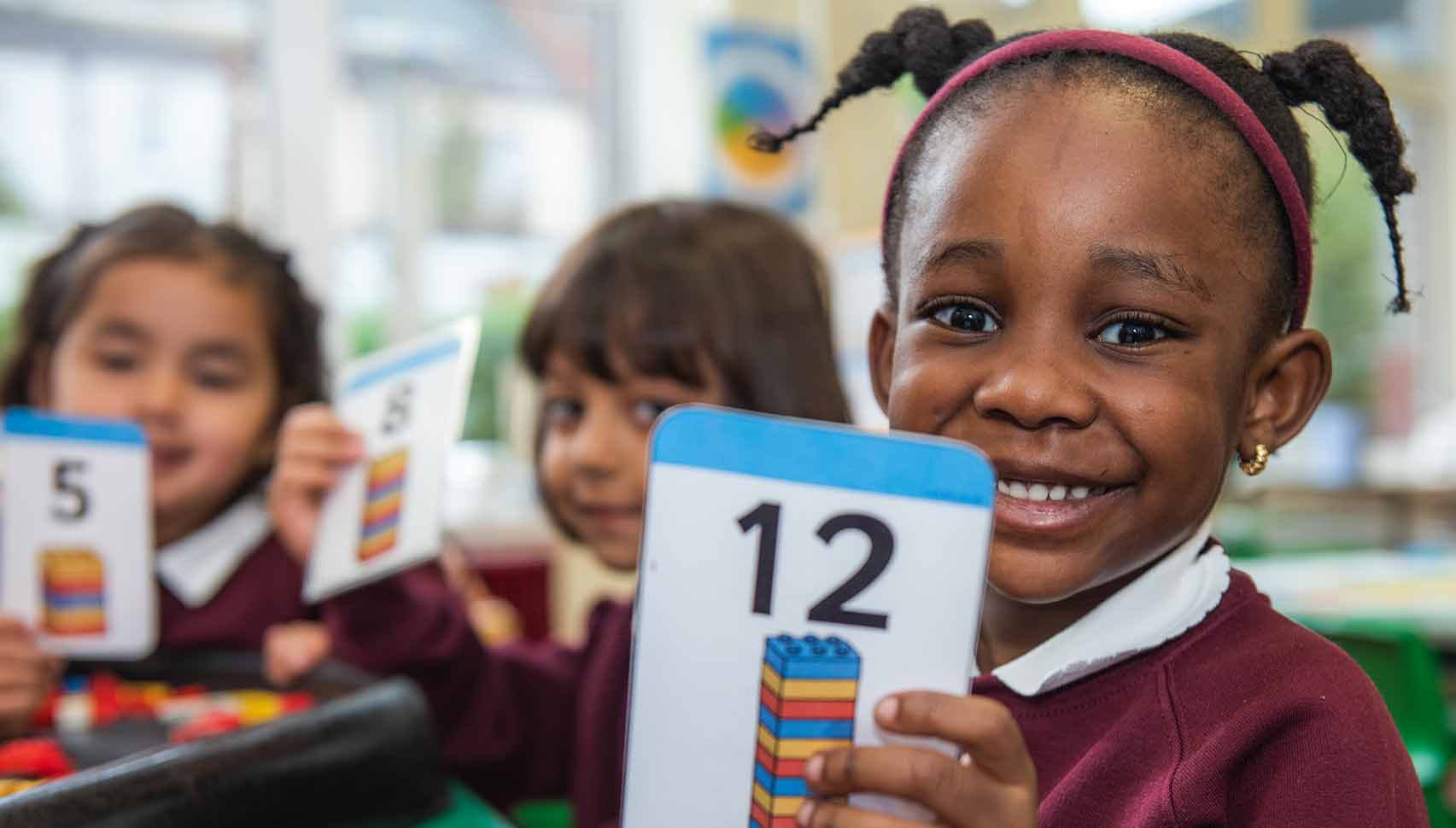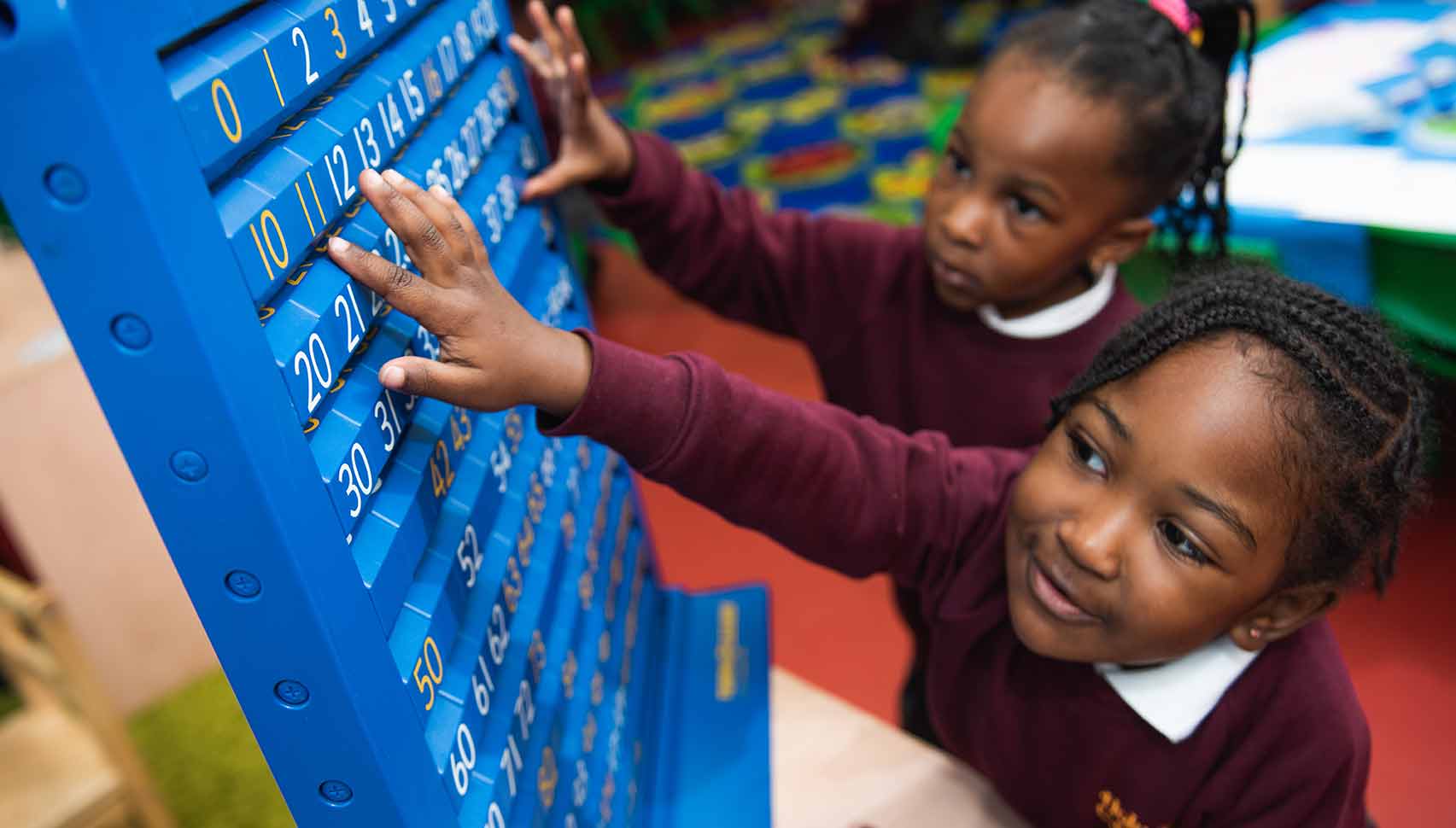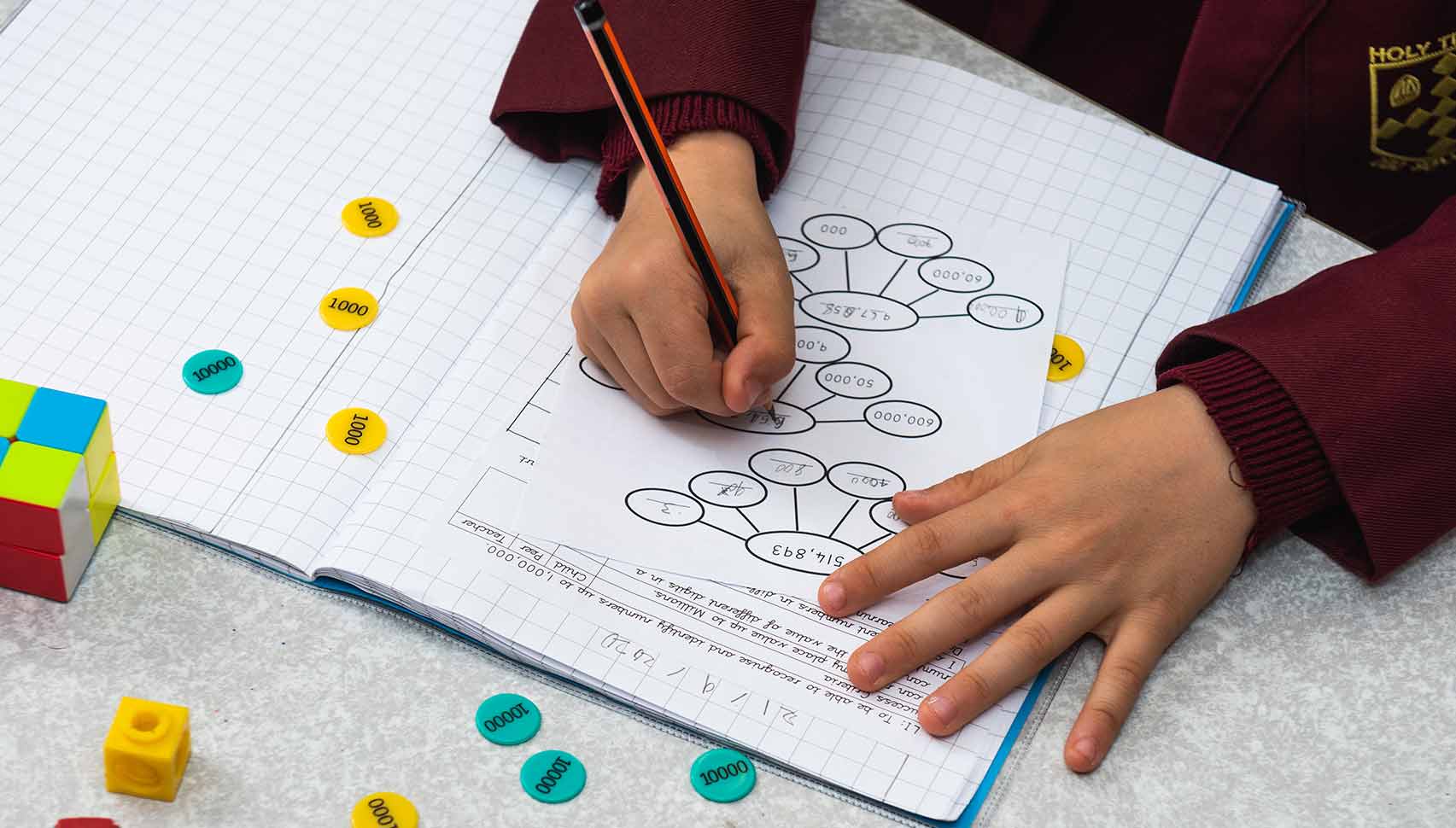Subject Leader : Pauline Thomas/Lesley Saddington
INTENT
At Holy Trinity, we promote a love of Maths through engaging lessons that children are active participants in. We follow a 'Teaching for Mastery approach', mixing a range of fluency practice (rapid recall of key facts and using these in context), with problem solving and reasoning challenges linked to real-life situations. Our belief is that all children should feel like they have the opportunity to succeed and be confident mathematicians, so provide opportunities for every child to succeed and embed their understanding giving a solid foundation from which they can build from.
We believe that every child deserves a high-quality Maths education in order to access the mathematical world around them, and so that they are prepared for their future lives and careers. Mathematics is a creative and highly interconnected discipline, which is essential to everyday life; critical to science, technology and engineering; and necessary for financial literacy and most forms of employment.
IMPLEMENTATION

The essential idea behind ‘Teaching for Mastery’ is that all children need a deep conceptual understanding of the mathematics they are learning so that:
· Future mathematical learning is built on solid foundations which do not need to be re-taught.
· Children who, under other teaching approaches, can often fall a long way behind, are better able to keep up with their peers, so that gaps in attainment are narrowed whilst the attainment of all is raised.
The five big ideas (fluency, representation and structure, variation, coherence and mathematical thinking) are incorporated in every maths lesson. Through the use of concrete, pictorial and abstract representations, all pupils develop a conceptual understanding and apply this to fluency, reasoning and problem-solving activities each lesson. Where possible learning is introduced in a real context, to make learning purposeful and relatable to the children.


IMPACT
To ensure consistency throughout the school, leaders ensure that:
- Staff receive regular training and support
- Termly summative assessments are monitored and appropriate intervention put in place following Pupil Progress meetings with SLT.
- Parents are provided with information throughout the year about how to support their child with maths.
- Learning walks provide opportunities for both formal and informal feedback.
- We regularly invest in maths resources where and when needed.
- To support our teaching, and to provide a range of challenges for all children, all teachers use the White Rose Scheme of work to prompt their lesson plans.
- Pupils have access to online resources - Numbots KS1 & Rockstars KS2.
As a result of this, pupils make good progress from their starting points, teaching and learning is consistent and children enjoy Mathematics!
The national curriculum for mathematics aims to ensure that all children:
- become fluent in the fundamentals of mathematics, including through varied and frequent practice with increasingly complex problems over time, so that children develop conceptual understanding and the ability to recall and apply knowledge rapidly and accurately.
- reason mathematically by following a line of enquiry, conjecturing relationships and generalisations, and developing an argument, justification or proof using mathematical language.
- can solve problems by applying their mathematics to a variety of routine and non-routine problems with increasing sophistication, including breaking down problems into a series of simpler steps and persevering in seeking solutions.
Mathematics is an interconnected subject in which children need to be able to move fluently between representations of mathematical ideas. The programmes of study are, by necessity, organised into apparently distinct domains, but children should make rich connections across mathematical ideas to develop fluency, mathematical reasoning and competence in solving increasingly sophisticated problems. They should also apply their mathematical knowledge to science and other subjects. The expectation is that the majority of children will move through the programmes of study at broadly the same pace.
Useful links
- National Centre for Excellence in the Teaching of Mathematics (NCETM) https://www.ncetm.org.uk/
- TT Rockstars https://ttrockstars.com/
- Numbots https://numbots.com/
